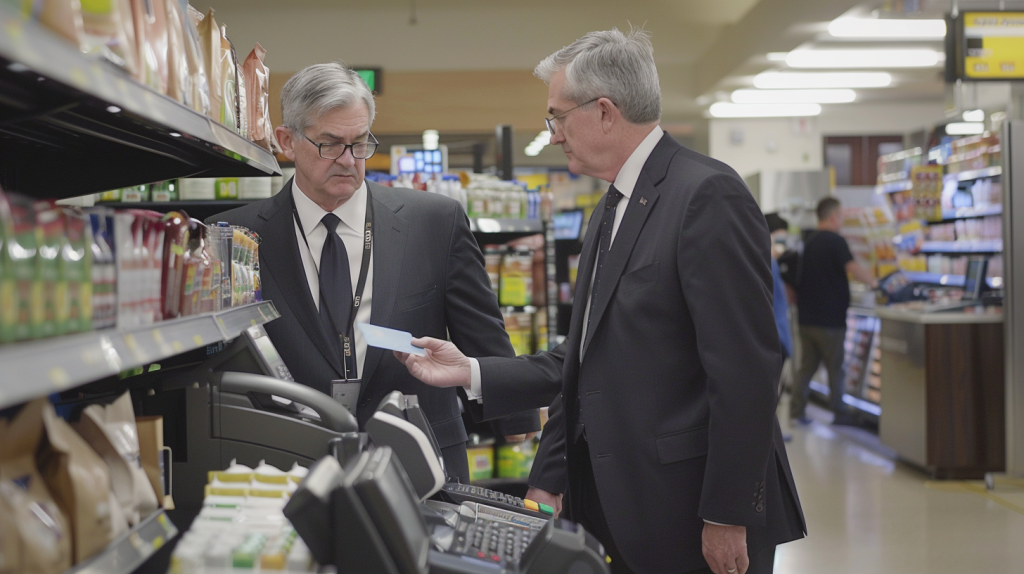
Could your free checking accounts, rewards, and cash-back programs be axed by the Federal Reserve? Late last year, the Federal Reserve proposed a rule to lower the cap on transaction fees businesses pay to financial institutions on every debit card swipe, also known as “interchange fees.”
These are the small fees that banks and credit unions charge merchants for using their payment rails to get paid. As more consumers now use debit cards instead of cash, these fees are a sweetener to the banking ecosystem, allowing banks to offer customers free checking accounts, ATM rebates, and free bill pay options. Contrary to popular belief, these perks cost money to provide.
The initial cap on debit card transactions, introduced into the 2010 Dodd-Frank Act, was 21 cents and .05 percent of the total transaction. The intention was to limit the amount banks charge merchants for withdrawing money directly from consumers’ accounts. Now, the Federal Reserve wants to lower that cap to 14 cents and .04 percent of the transaction.
Capping fees may seem like a win for consumers, but it’s not that simple.
By increasing the cost of banking, especially for lower-income customers, caps would eliminate many of the perks and consumer-friendly options that have made banking much more affordable in the United States than in other countries. Caps would also weaken banks’ ability to prevent fraud and cyberattacks and likely pass the costs on to consumers.
Fed Board member Michelle Bowman agreed, writing in her dissent that “It is possible that banks will be forced to either pass costs through to customers or operate their debit card programs as a loss leader.”
When a consumer uses a debit card, the business establishment pays a small fee to ensure immediate settlement and guarantee protection from fraud. Americans like this option because they don’t have to deal with interest and can see those payments in real time on their accounts.
When the 2010 cap was first introduced, minutes from the deliberations within the Federal Reserve at the time show that Fed governors expressed concern about this policy and only adopted it after expressing severe misgivings.
One Fed governor, Sarah Bloom Raskin, called the provision “controversial,” and then-Chairman Ben Bernanke called it “very difficult.” Governor Elizabeth Duck predicted the real impact of the rule: “One seemingly unavoidable impact is higher fees on checking accounts.”
Data collected over the last 13 years confirms this.
The adoption of price controls on debit card interchange fees has shifted an estimated $100 billion to big box stores like Walmart and Costco while increasing banking costs for millions of Americans in the form of higher monthly fees. Sadly, it has also led to the complete elimination of nearly a million Americans from the mainstream banking system.
Despite all the data now available demonstrating all the cons of the past cap, the Fed is now doubling down and proposing more restrictions on interchange fees.
The nearly 30-percent reduction proposed by the Fed would impose costs on those least able to afford it. It will provide yet another windfall to large retail merchants while restricting the ability of small banks and credit unions to meet the needs of their customers by offering free and low-cost options.
If this measure takes effect, it would once again reduce consumer options when choosing a bank, to say nothing of the more limited rewards and perks that’ll come with a new account.
Of course, merchants can choose whether or not to accept certain debit or credit cards. They could only accept cash or cryptocurrencies. But if they want to offer consumers the convenience of debit cards, then they should pay a rate set by competition, not by financial bureaucrats. Mandating or capping fees arbitrarily would be yet another method of price fixing.
Consumers benefit from competition. Competition fosters efficiency and lowers costs. By placing its thumb on the scales, the Fed has chosen a winner and a loser in the debit card space, and the losers will be the consumers who need affordable banking services.
The Fed should remember that its primary mission is to ensure that the playing field is level for everyone. Regulation II misses the mark and should be rescinded.
Yaël Ossowski is a consumer and technology advocate, journalist, and writer. He is the deputy director at the Consumer Choice Center
Published on the Daily Caller (archive link)